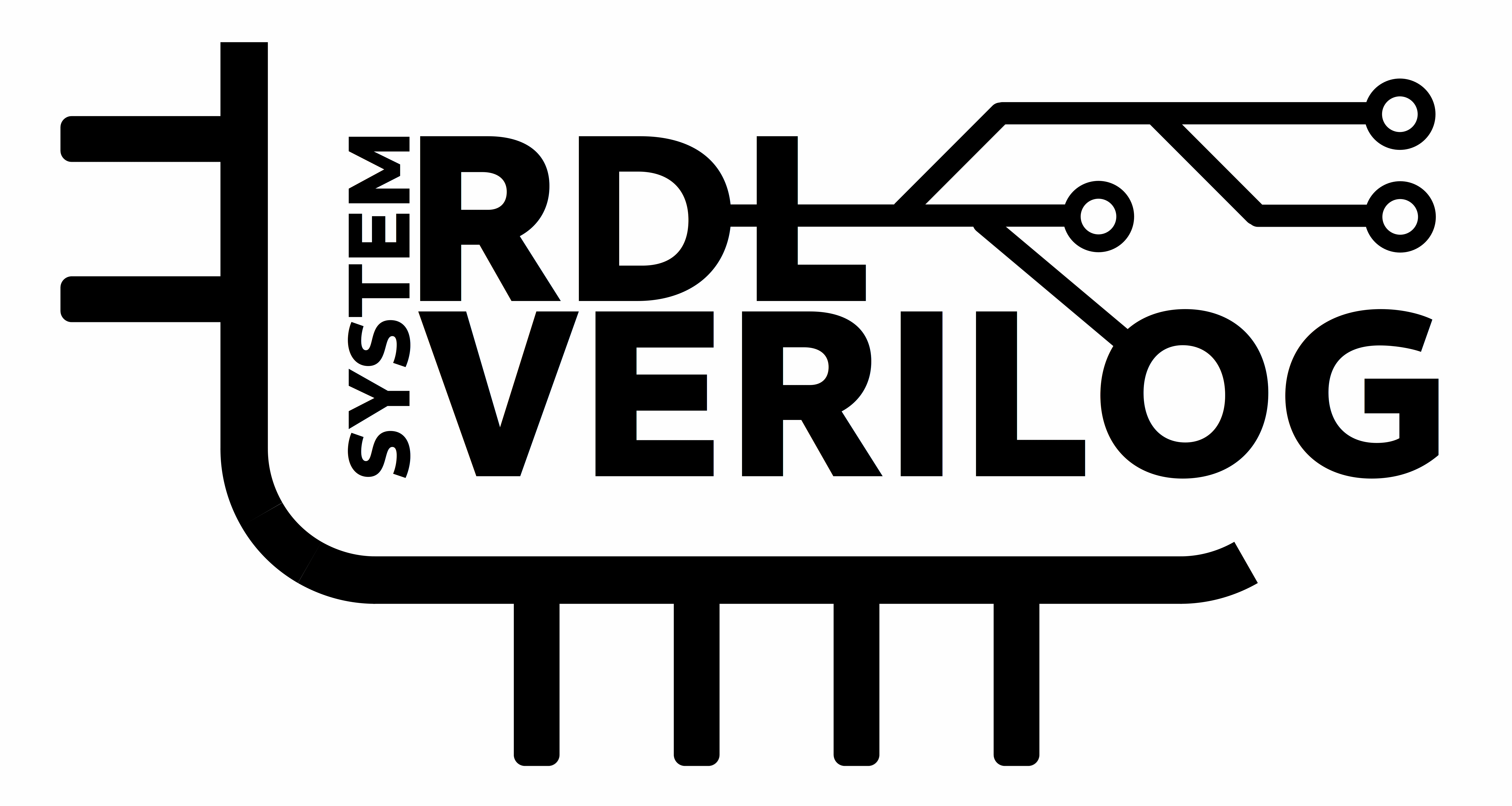Introduction
srdl2sv is a SystemRDL 2.0 to (synthesizable) SystemVerilog compiler. The tool is based on based on SystemRDL/systemrdl-compiler.
⚠️ Non-production ready
Warning! This software is still under development and not yet ready for use in production.
Getting started
Installation
Compiling your first RDL
The argument that is required to get started is the location of the SystemRDL file that contains the root address map. The compiler will generate a seperate SystemVerilog module for each address map it encounters in the code. Thus, if address maps are instantiated within other address maps, these will be packed into a seperate module.
To compile a file called example_addrmap.rdl, simply run:
srdl2sv example_addrmap.rdl
By default, the compiler will create a directory called srdl2sv_out and dump example_addrmap.sv with the actual RTL and a log file that contains INFO-level logging into this directory. To change the logging level, use --file_log_level like shown below:
srdl2sv example_addrmap.rdl
--stream_log_level {DEBUG,INFO,WARNING,ERROR,CRITICAL,NONE}
Similarly, to change the default log level of the output to the shell, which is WARNING, use --stream_log_level like shown below:
srdl2sv example_addrmap.rdl
--stream_log_level {DEBUG,INFO,WARNING,ERROR,CRITICAL,NONE}
--file_log_level {DEBUG,INFO,WARNING,ERROR,CRITICAL,NONE}
If the RDL file includes other RDL files, the directories that contain these files must be passed to the compiler as follows:
srdl2sv example_addrmap.rdl
--search_paths SEARCH_PATHS [SEARCH_PATHS ...]
Using the generated RTL
Help function
A comprehensive help function of the tool can be invoked by running srdl2sv --help.
usage: main.py [-h] [-o OUT_DIR] [-d SEARCH_PATHS [SEARCH_PATHS ...]] [-r] [-x] [-e] [--stream_log_level {DEBUG,INFO,WARNING,ERROR,CRITICAL,NONE}] [--file_log_level {DEBUG,INFO,WARNING,ERROR,CRITICAL,NONE}]
[--real_tabs] [--tab_width TAB_WIDTH]
IN_RDL [IN_RDL ...]
SystemRDL 2 SystemVerilog compiler
positional arguments:
IN_RDL Location of RDL file(s) with root addrmap.
optional arguments:
-h, --help show this help message and exit
-o OUT_DIR, --out_dir OUT_DIR
Define output directory to dump files. If directory is non-existent, it will be created. (default: ./srdl2sv_out)
-d SEARCH_PATHS [SEARCH_PATHS ...], --search_paths SEARCH_PATHS [SEARCH_PATHS ...]
Point to one (or more) directories that will be searched for RDL files.
-r, --recursive_search
If set, the dependency directories will be searched recursively.
-x, --disable_sanity Disable sanity checks or components. This might speed up the compiler but is generally not recommended!
-e, --disable_enums Disable enumeration generation. This will prevent the compiler from generating packages and it will prevent it from using enums in the port list.
--stream_log_level {DEBUG,INFO,WARNING,ERROR,CRITICAL,NONE}
Set verbosity level of output to shell. When set to 'NONE', nothing will be printed to the shell. (default: WARNING)
--file_log_level {DEBUG,INFO,WARNING,ERROR,CRITICAL,NONE}
Set verbosity level of output to log-file. When set to 'NONE', nothing will be printed to the shell. (default: INFO)
--real_tabs Use tabs, rather than spaces, for tabs
--tab_width TAB_WIDTH
Define how many tabs or spaces will be contained in one level of indentation. (default: 4)
Contributing
Limitations
- Any limitations to the systemrdl-compiler also apply to the SystemRDL2SystemVerilog compiler.
- Depth of a hierarchy is limited to 26 levels.
